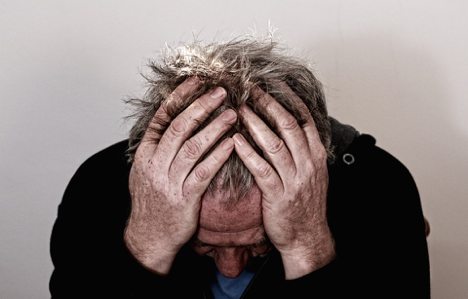Can Cannabis Cure My Migraines?
Posted 7 years ago by Ian Shutts

Migraine headaches are characterized by severe pulsing and throbbing sensations typically limited to just one area of the head, though it’s not unusual to affect both sides of the head. The painful throbbing headache is so severe that it can incapacitate a person and confine him in bed for days. Not only does he have to deal with the constant throbbing headache, but migraine attacks are also oftentimes accompanied by other symptoms as well like nausea, vomiting, blurry vision, and fainting. Sensitivity to sounds, light, smell, and even touch is also very common.
Migraine attacks are usually triggered by hormonal changes, salty foods, caffeinated drinks, alcohol, stress, medications, and even changes in weather. Treatment for migraines includes NSAIDs, antiemetic drugs, triptans, glucocorticoids, and opioids for severe migraine attacks.
Understanding Migraines
What causes migraines aren’t clearly understood, but neurovascular dysfunction seems to play a role. According to a study, the cerebral cortex of one who suffers from migraine headaches is hyperexcitable, which makes it easy to trigger a headache.
The trigger will also stimulate the trigeminovascular system to release chemicals associated with pain and neuroinflammation, causing vasodilation of brain blood vessels and pain.
Furthermore, an imbalance in neurotransmitters also contributes to the development of migraine headaches – high dopamine level, high glutamate level, and low serotonin level. Magnesium deficiency also plays a role.
Cannabis and Pain
Our endocannabinoid system is involved in the regulation and modulation of pain signals, and its activation results in widespread pain control.
Cannabis is known to control chronic pain, including migraine headaches. When you smoke cannabis or ingest cannabis oil, the phytocannabinoids will bind to the receptors responsible for pain and activate them to modulate the response to pain. THC, for example, will directly bind to the CB1 receptor, the cannabinoid receptor responsible for pain regulation.
CBD, while it doesn’t directly bind to the CB1 receptor, is also a potent analgesic, but it does this by stimulating non-cannabinoid receptors like the serotonin and vanilloid receptors. Both these receptors are key players in pain modulation.
CBD has another way of controlling pain, and this is by inhibiting the breakdown of anandamide by blocking anandamide’s transporter (fatty acid-binding proteins) to the enzyme that breaks it down called fatty acid amide hydrolase.
Cannabis and Neuroinflammation
As mentioned above, neuroinflammation plays a role in the development of migraine attacks. The immune cells release not only chemokines that attract more immune cells to the area and worsen the problem, but they also release nociceptive chemicals that cause vasodilation and exacerbates pain.
What cannabis does is to induce apoptosis of these immune cells and inhibit them from releasing chemokines and nociceptive chemicals. In doing so, migraine headaches are reduced.
Cannabis and Neurotransmitters
Cannabis, particularly CBD, also has an effect on neurotransmitter imbalance. When CBD activates the adenosine receptors, glutamate and dopamine release is reduced since these receptors have the ability to down-regulate or suppress the release of these neurotransmitters.
Additionally, cannabis, at low doses, can also increase the brain’s serotonin level and normalize the low-serotonin level associated with migraine headaches. Cannabis’ activation of the serotonin receptors also produces antiemetic effects and control the nausea and vomiting symptoms that accompany migraine attacks.
A Study on Cannabis and Migraine Headaches
One study involved 121 adults suffering from migraines. They were treated with medical cannabis and were asked to use it as prophylaxis as well. After the study, most of the participants reported a significant improvement in their migraine headaches. From an average number of 10.4 migraine attacks monthly, medical cannabis was able to bring this number down to 4.6 migraine attacks monthly. The majority of the participants (85%) stated that the frequency of their migraine attacks was greatly reduced, with 11.6% of them even saying that medical cannabis completely stopped the migraine headache from developing.
The study also showed that inhaled forms of medical cannabis were more effective in controlling acute migraine attacks. Inhaled medical cannabis, compared to cannabis edibles, offer rapid-onset, fast-acting effects. It can stop the development of migraine headaches as soon as it starts. Cannabis edibles, on the other hand, have to be digested first before the effects can be felt, and this process can take anywhere from an hour to more than three hours
Migraine headaches can be very debilitating and greatly affect your daily activities. While conventional medications can help control the headaches, sometimes the headaches don’t respond to the treatment. Medical cannabis has the potential to help patients suffering from migraines. Not only can cannabis control pain and neuroinflammation associated with migraines, but it also has the potential to restore neurotransmitter balance.